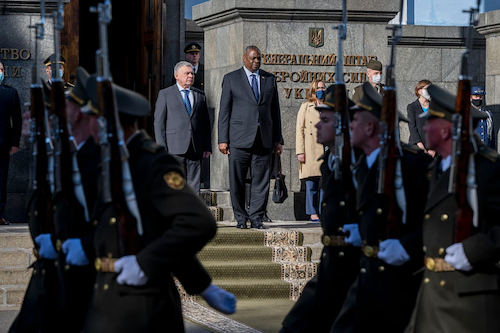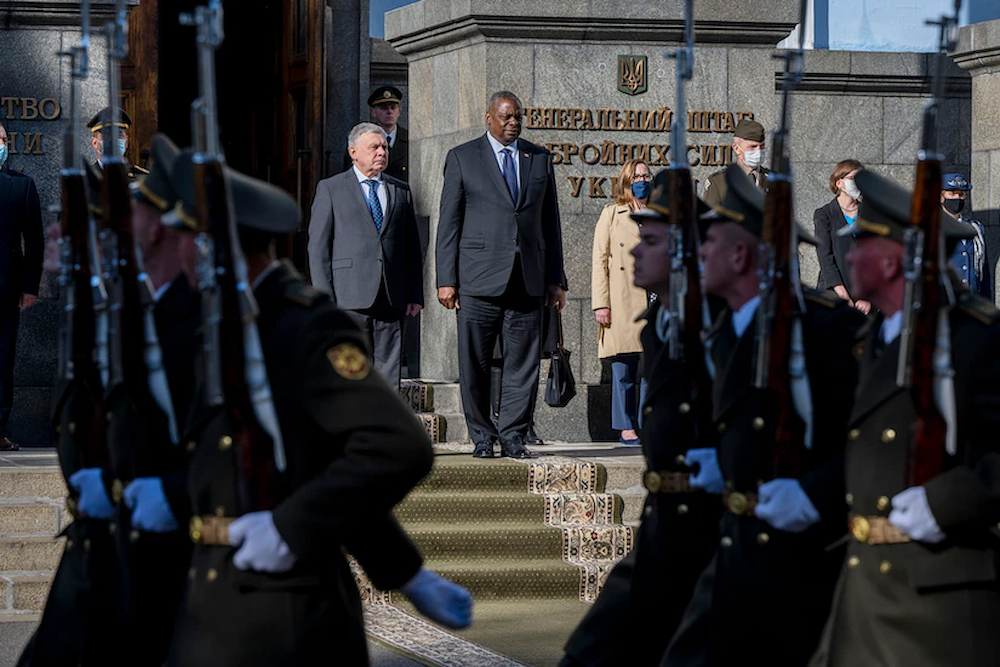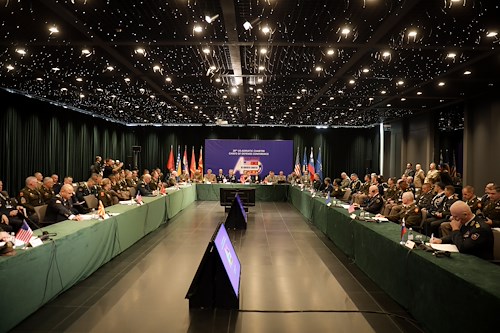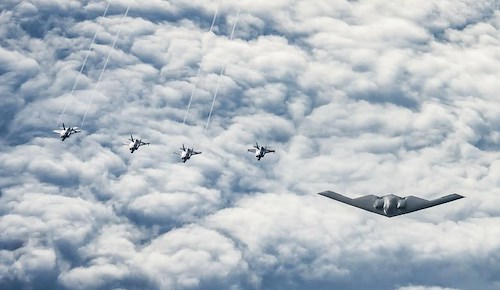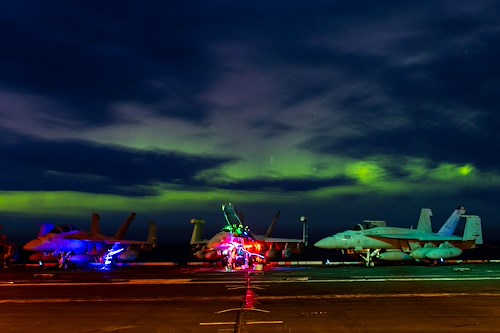Gallery contains 1 image
×
Photo 1 of 1
1634734061781.png
Photo by: U.S. European Command Public Affairs
In 2014, Russia occupied and illegally annexed Crimea from Ukraine and then fomented a war in Eastern Ukraine that has so far killed 14,000 Ukrainians.
In 2008, Russia invaded the Georgian provinces of South Ossetia and Abkhazia — 20 percent of the nation's land mass.
All nations were shocked by the Russian moves, and the dream of seeing a Europe "whole, free and at peace," that had seemed possible with the fall of the Soviet Union in 1991, suffered a blow.
The North Atlantic Treaty Organization answered the Russian moves by stressing unity. NATO, which had been working with Ukraine and Georgia via the Partnership for Peace program, offered support to the nations. During the Wales Summit, the nations pledged to spend at least 2 percent of gross domestic product on defense.
The number of NATO nations that have done that has increased and other nations are getting closer to the alliance goal. This has added billions of dollars to deterrence and security measures in Europe.
Russia still remains a big problem. Russia still occupies the Georgian provinces and Russian troops still kill Ukrainians in the Donbas region of Ukraine. Russian President Vladimir Putin still insists Crimea is part of Russia.
Secretary of Defense Lloyd J. Austin III is visiting the frontline states of Georgia, Ukraine and Romania before traveling to Belgium for the NATO Defense Ministerial Meeting in Brussels.
Part of his trip is to reassure allies of America's commitment to the Trans-Atlantic Alliance. Part is to reassure specific allies of America's "unwavering support" of their sovereignty and territorial integrity.
Ukraine is a case in point. Austin met with Ukrainian President Volodymyr Zelensky and with Defense Minister Andriy Taran. They discussed the U.S.-Ukraine Strategic Defense Framework implementation and ways to build up Ukraine's capabilities and capacities.
"Our relationship with Ukraine has steadily grown since 2014, and we're at a phase now where we're deepening cooperation in a number of areas," said a senior defense official speaking on background to reporters traveling with Austin. "At the same time, we're at a phase where the Ukraine Ministry of Defense is deepening its defense reform agenda."
This is a two-pronged approach to the security situation in Ukraine. One part improves institutional aspects of the Ukrainian military — civilian control, transparency, manpower, budgeting and more. This will improve the effectiveness of the Ukrainians and "enhance their resilience against Russian malign influence," the official said.
The framework addresses the gorilla in the room: Russia. "First and foremost, we are committing to assistance that will help the Ukrainian counter Russian aggression," said the senior official. "This relates to our extensive training mission that kicked off in 2015, after the Russian invasion, and has grown ever since."
The United States has about 150 troops at a Ukrainian military center in the western part of the country that are conducting the training mission. The framework continues this mission to expand Ukraine's military capabilities.
Defense sector reforms are equally important and the government is committed to advancing these reforms. "We're at the point where we're not looking at just the tactical and operational level," the official said. Those levels have already made a great deal of progress.
"Now we're looking at the strategic level," the official said. "We need to enhance Ukraine's civilian control of the military, and this [involves] capacity building within the Ministry of Defense itself."
Another focus area is defense industry reform. "Ukraine has a legacy Soviet-type military industrial complex, and this is something that needs to undergo a number of reforms in order to ensure the responsiveness to Ukrainian armed forces needs and capability requirements, but also for competitiveness in a modern economy," the official said.
The Ukrainian legislature has passed laws to create the legal basis for follow-on action. One was a law on procurement that will pave the way for transparency in the procurement process. Another was a law on defense industry "corporatization," which paves the way for industry structures that are Western in orientation.
Another important part of the framework deals with Black Sea cooperation. Austin visited Georgia before stopping in Ukraine and will travel on to Romania. All three countries are on the Black Sea. Russia is very active on this body of water and is using its strength to hinder activities there. In 2018, Russia seized three Ukrainian vessels trying to transit to the Sea of Azov. "Russia has continued to harass shipping going into the Sea of Azov, creating a real … negative economic impact for Ukraine, and throughout the Black Sea," the official said.
"With Ukraine, we've had a real growth in what we're doing in the maritime domain in the past few years," the official said. "We have committed to provide nine Mark VI patrol boats, and seven Island-class patrol boats. They are being provided through our excess defense article program."
The official noted this aid to Ukraine is not just an American effort. The United Kingdom, Canada, Lithuania, Poland and Denmark are also working with the Ukrainian military.
Cyber is another realm of increasing importance, and this is not limited to military channels. Cyber defense aids the entire country in resilience and a number of Ukrainian departments and agencies are involved in this effort.
Finally, there is a robust defense intelligence sharing relationship under the framework which will continue.

